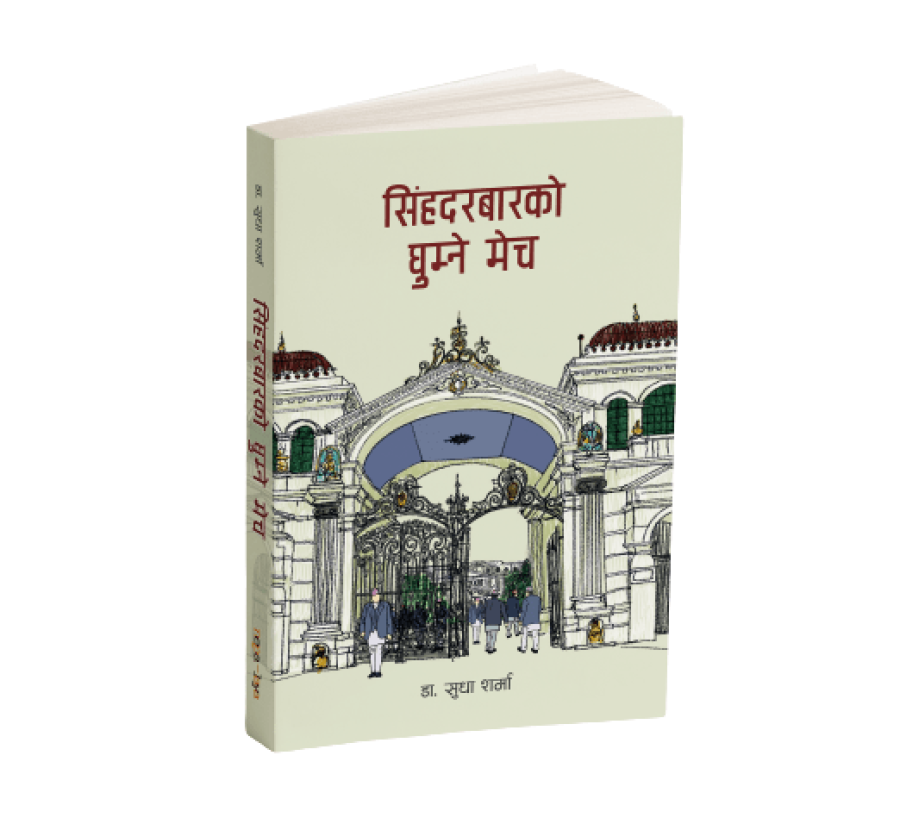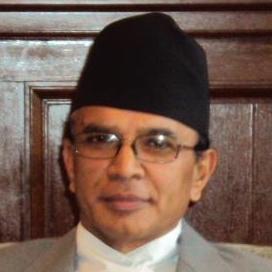Books
Of being a woman in a man's world
Sudha Sharma’s memoir is the story of a woman who treads her own path in an unwelcoming and discouraging patriarchal structure.
Madan Kumar Bhattarai
Dr Sudha Sharma is a known and respected name in Nepali academia. Also known for serving as a top-level health bureaucrat, she recently published her much-awaited memoir, interestingly entitled ‘Singha Durbar ko Ghumne Mech’, which can be loosely translated to ‘The Revolving Chair of Singha Durbar’.
The book, with an impressive front cover of the southern main gate of the premises of the sanctum sanctorum of Nepali bureaucracy, has 14 chapters that encapsulate the author’s life spanning over six and half decades.
Written over a span of almost 10 years, the book is a frank appraisal of the performance and role of medical experts. Dr Sharma admirably—and honestly—portrays both the positive and the negative aspects of the country's healthcare system. She writes about the interplay of selfish forces in terms of delivering proper healthcare services and about rampant large-scale corruption that affects the health sector particularly in terms of construction. She also writes about the malfeasance and misfeasance with mala fide intentions on the part of politicians, especially in regards to health administration; the unbroken saga of non-accountability in the country as a whole, irrespective of change of governance; and a gradual drift of health bureaucracy through overt and covert politicisation.
In the book, she states that there is a thin line between the bounds of reticence, dictated by the secrecy of the office, and what she intends to divulge. But she minces no words in naming and shaming individuals and even systems that have been detrimental to the people and country. In many ways, the book—with its documentation of certain events—lambasts the government by highlighting its ills, particularly in its approach towards women in leadership roles.
She also focuses on her illustrious father, Laxmi Nath Gautam, son of a noted Sanskrit and Ayurveda scholar, Kulchandra Gautam. Laxmi Nath Gautam also served as Home Secretary and Nepal Rastra Bank Governor during his long innings in the bureaucracy. She chronicles two incidents that humiliated her father, and uses them to highlight the reality of how things run in a bureaucracy.
The first incident involves the then Home Minister, whom she does not name but gives obvious references of, who wanted a criminal released. Gautam did not comply with the request and as a result, he was thrown into a reserve pool for four years by the minister. The second incident involved a flash news from Radio Nepal related to the acceptance of his resignation as Governor. The news came as a surprise to him, writes Sharma, as her father had not tendered any resignation. Though not able to do much under the circumstances, Gautam retaliated in his own way when he refused to accept the position he was offered in the Administrative Reforms Commission.
She also admits her soft corner for liberal democracy and civil rights after her marriage to a fellow medico, Dr Bijay Sharma, with connections to the Koirala family. So understandably, she was instrumental in galvanising support for the successful restoration of democracy in 2006 acting in unison with other organisations as first lady President of Nepal Medical Association.
Dr Sharma is a close friend and a colleague as we took over the office of Health Secretary and Foreign Secretary respectively at the same time. We served in close liaisons especially in the context of the Trauma Centre that she has mentioned and other issues that warranted inter-ministerial coordination.
But she was not allowed to work through repeated transfers as Health Secretary and Population Secretary and hindrances and obstacles posed by her ministers. Dr Sudha’s sense of pride prevented her from facing more humiliations and she tendered her resignation. Soon after, she opted to serve as head of the department of health and nutrition in Tanzania for five and half years to make the best use of her expertise she had gained through brilliant academic records and rich professional experience.
In a nutshell, the book presents three major points. First, our political class, despite tall talks of ambitious goals, gives primacy to individuals and political alliances. Second, politically appointed people tend to exploit resources rather than serve the institutions they are assigned to. Third and more dangerous is that the virtually untrained political class has a visceral tendency to humiliate and discredit civil servants and bureaucracy.
In the book, Sharma talks about the bouts of humiliation she often had to undergo for being a woman despite her professional credentials, proven expertise in her field, adequate international exposure and concentration to her assigned duty with acclaim from both internal and external observers. Her major frustration comes from the fact that despite their lofty slogans, other women—be they legislators, associated with non-governmental organisations or civil society—prefer to turn a blind eye when it comes to offering sympathy, support or cooperation to another woman’s predicament.
The only weakness of the book that is common with other autobiographies and memoirs is its concentration on oneself. Otherwise, the book, with the information and statistics it has, is a valuable addition to the country’s literature about health, gender mainstreaming, public policy, sociology and public administration.
________________________________
Singha Darbarko Ghumne Mech
Dr Sudha Sharma
Publishers: Nepalaya, Kathmandu, 2020
Pages 208
Price: Rs 425




 22.37°C Kathmandu
22.37°C Kathmandu










